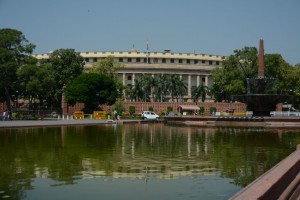Lok Sabha passed the Negotiable Instruments (Amendment) Bill, 2015 which was introduced in Lok Sabha on 27.7.2015 by the Finance Minister Mr. Arun Jaitley. The Bill seeks to amend the Negotiable Instrument Act, 1881 and replace the Negotiable Instruments (Amendment) Ordinance, 2015 promulgated on 15.6.2015. The Bill modifies the definition of “a cheque in electronic form” and clarifies the territorial jurisdiction of courts trying cases of dishonouring of cheques by amending Section 142 of the Negotiable Instruments Act, 1881.
The Bill provides that in the case of a cheque being dishonoured, if the cheque is delivered for collection to the account of the payee, the appropriate jurisdiction will be in the area of the bank branch where the payee maintains the account. And if the payee presents a cheque to a bank in any other way, the jurisdiction will be in the area where the drawer maintains the account. The Bill also provides that all the cases regarding bouncing of cheques which are pending in any court, before the commencement of the Negotiable Instruments (Amendment) Act, 2015 shall be transferred to the court having appropriate jurisdiction according to the Amendment Act after the commencement of the Amendment Act, 2015.
The Bill modified the definition of “a cheque in electronic form” by defining it to mean a cheque drawn in electronic medium by using any computer resource and signed in a secure system with digital signature (with or without biometrics signature) and asymmetric crypto system or electronic signature. The phrase in the existing Act is defined as a cheque which contains the exact mirror image of a paper cheque, and is generated, written and signed in a secure system ensuring the minimum safety standards with the use of digital signature. This definition is realised to be deficient as it presumes the drawing of a physical cheque, which is not the objective in preparing “a cheque in the electronic form”.

